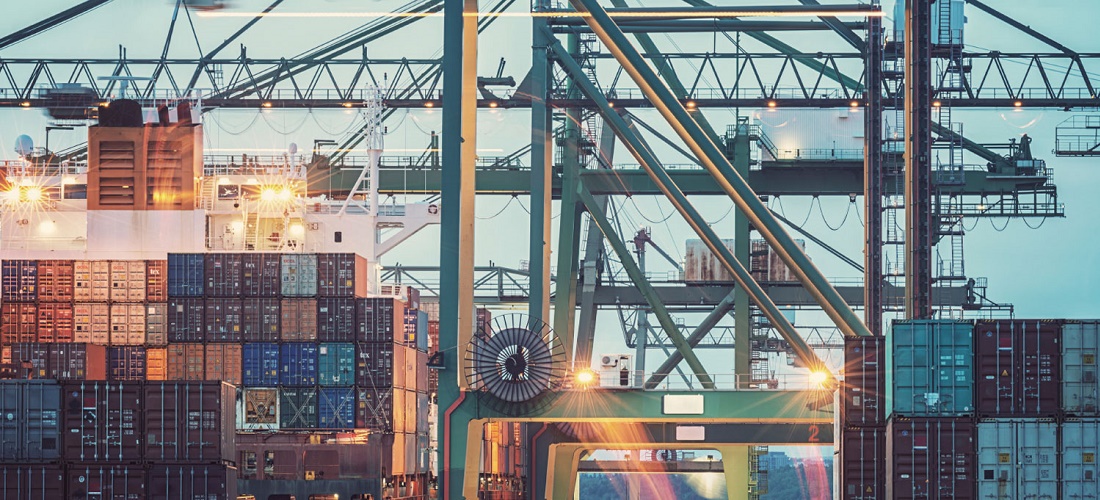
Maritime Freight Rates Skyrocket by 400% in Six Months, Impacting Brazilian Ports
Jul, 15, 2024 Posted by Gabriel MalheirosWeek 202428
Maritime freight rates have soared by up to 400% over six months, impacting Brazil amid global inflationary pressures. One contributing factor are the attacks by the Houthis on merchant ships in the Red Sea, a gateway to the Suez Canal in Egypt — a vital artery of international trade handling about 15% of global cargo transport. To avoid this route, ships must circumnavigate Africa, extending their voyages up to 30 days, consequently inflating freight and maritime insurance costs.
Backed by Iran, the Houthis are a Yemeni rebel group strongly opposed to Israel. Attacks began following the extremist group Hamas’ offensive against Israel in October last year. However, most targeted cargo vessels in the region have no affiliation with Israel.
According to Jackson Campos, an expert in foreign trade and director of Institutional Relations at AGL Cargo, “maritime freight has increased by 400%, rising from US$ 2,000 in January to US$ 10,000 in July”.
The specialist further noted: “container shortages persist in the market, exacerbated by excess cargo awaiting shipment from origins due to high demand”.
Regarding improvements, the expert does not foresee “any decline soon.” “Shipowners are not negotiating medium or long-term contracts; everything is being negotiated short-term (spot). There is no ceiling on price increases, nor any predictions of price drops”, Campos stated.
“With this situation in the Red Sea contributing to higher freight costs and a stronger dollar, business planning for importing products to meet market demands becomes more challenging, and these price fluctuations ultimately trickle down to the end consumer”, said Jackson Campos.
Columnist at A Tribuna and director of the Maritime Law Academy (MLAw), Eliane Octaviano noted the highest increase was observed in June. “According to specialized agencies, there has been an average 100% increase in maritime freight rates from Asia to Europe and a 50% increase from Asia to the Americas. However, on the Asia-Brazil route, increases have exceeded 200%, reaching even higher levels for containerized cargo transport”.
The specialist commented that “the diversion of one of the world’s most important maritime routes for global trade in raw materials, oil and gas and consumer goods will impact global supply chains and logistics”.
Eliane explained that by avoiding the route ships must navigate around Africa, adding up to a month to their journey, thereby increasing freight and maritime insurance costs. She noted significant increases in insurance prices on this route, rising up to 250% for Israel’s maritime companies.
“In this scenario, companies pass on cost increases to the end consumer, causing a ‘cascading effect’ on the economy, boosting inflation and thereby reducing purchasing power for the population at a critical time for governments implementing post-pandemic inflation control measures,” said the jurist.
Eliane also stated that delays are affecting container and ship availability. “Another factor contributing to container scarcity and rising freight costs is increased imports of electric cars since the Brazilian government announced higher import duty rates for these vehicles in the first half of the year.”
Overall, Eliane believes in other impacts to consider, includind global geopolitical tensions, climate issues such as drought in the Panama Canal and the Amazon River, operational restrictions and logistical challenges related to Brazilian port infrastructure.
Finally, Eliane sees the current outlook unfavorably. “Unfortunately, I don’t have an optimistic view and I think as long as the conflict and attacks persist the situation may be worse”.
Source: A Tribuna
Click here to access this story’s original report: https://www.atribuna.com.br/noticias/portomar/en/maritime-freight-rates-surge-until-400-over-six-months-and-affect-brazilian-ports-1.426026
-
Economy
Apr, 02, 2021
0
Brazilian trade balance registers US$ 1.482 bi surplus in March
-
Meat
Jul, 10, 2023
0
Chinese demand puts pressure on beef prices in Brazil
-
Ports and Terminals
Feb, 10, 2022
0
Cargo exports in containers increase 24% in the Port of Paranaguá
-
Economy
Feb, 28, 2025
0
China accuses US of fentanyl ‘blackmail’ after latest tariff threat

